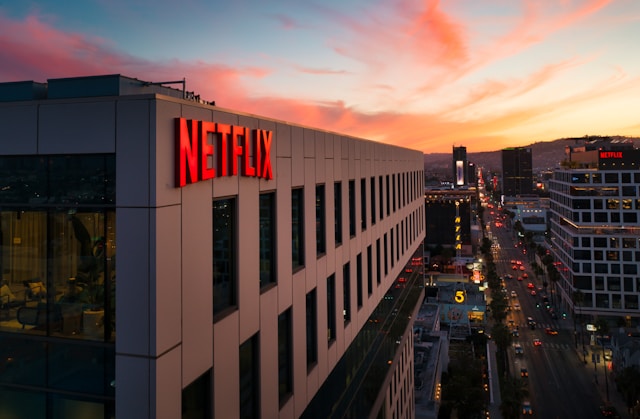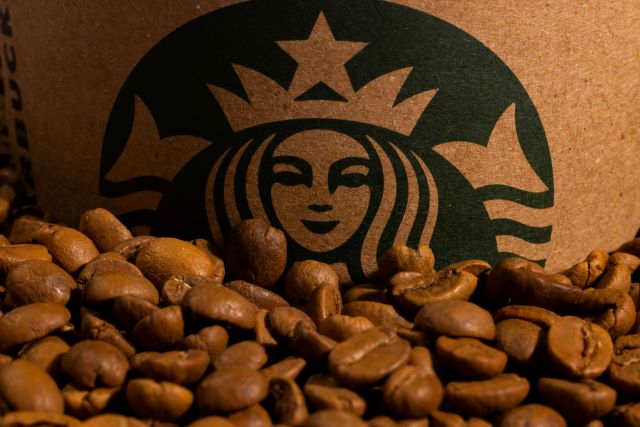Brand loyalty is an essential component of long-term business success. Companies with loyal customers enjoy consistent revenue, robust word-of-mouth marketing, and a significant competitive edge. Building brand loyalty is not a simple task; it requires a multifaceted approach that includes providing excellent product quality, delivering exceptional customer service, and fostering authentic engagement. Read on to discover strategies and best practices that businesses can implement to nurture brand loyalty, illustrated with examples from leading brands.
Understanding Brand Loyalty
Brand loyalty refers to the tendency of consumers to continuously purchase the same brand’s products or services rather than switching to a competitor. This loyalty goes beyond rational factors such as price and quality and includes emotional connections and positive experiences that tie customers to the brand. Loyal customers are more likely to advocate for the brand, contributing to a strong community of brand enthusiasts and sustained business growth.
Delivering Quality and Consistency
At the core of brand loyalty is the consistent delivery of high-quality products or services. Customers must trust that every interaction with the brand will meet or exceed their expectations. This trust is built over time through repeated positive experiences.
Product excellence is foundational to any loyal customer base. Apple, for example, has cultivated a loyal following through its unwavering commitment to innovative and reliable technology. Every new iPhone release generates significant buzz and anticipation because customers trust in the brand’s dedication to excellence. Apple’s meticulous attention to design, functionality, and user experience sets a standard that customers have come to expect.

Service reliability is equally important. Beyond the product itself, the service associated with it must be dependable. Amazon has set the benchmark in this regard, with its efficient delivery and hassle-free return policies. Customers know they can count on Amazon for fast, reliable service, fostering a deep sense of loyalty. Amazon’s Prime membership program, offering benefits such as free shipping, exclusive deals, and access to streaming services, further strengthens this loyalty by creating an ecosystem of value around the brand.
Exceptional Customer Service
Customer service is a critical touchpoint in building brand loyalty. Exceptional service can turn a one-time buyer into a lifelong customer, while poor service can drive them away. Businesses can enhance their customer service by focusing on personalization, responsiveness, and proactive engagement.
Personalized experiences make customers feel valued and understood. Sephora excels in this area by leveraging customer data to offer tailored product recommendations and beauty advice. Their Beauty Insider program further personalizes the shopping experience, rewarding loyal customers with exclusive offers and early access to new products. This level of personalization makes customers feel recognized and appreciated, deepening their connection to the brand.
Responsive support is essential for maintaining customer satisfaction. Zappos, an online shoe retailer, is renowned for its exceptional customer service. The company empowers its representatives to go above and beyond to ensure customer satisfaction, including offering free returns and replacements without question. This level of service creates memorable experiences that foster loyalty and trust. Customers who experience such attentive and accommodating service are more likely to remain loyal to the brand.
Proactive engagement involves anticipating customer needs and addressing issues before they arise. Netflix, for instance, proactively informs users of potential disruptions and compensates them if necessary. This proactive approach helps maintain trust and loyalty even when issues occur. By taking responsibility and providing solutions before customers have to ask, Netflix demonstrates its commitment to customer satisfaction.

Building an Emotional Connection
Emotional connections are powerful drivers of brand loyalty. When customers feel a genuine connection to a brand, they are more likely to remain loyal. Companies can build these connections through storytelling, community building, and authenticity.
Sharing the brand’s story and values can resonate deeply with customers. Patagonia, an outdoor apparel company, effectively uses storytelling to highlight its commitment to environmental sustainability. Their marketing campaigns often focus on the company’s conservation efforts, attracting customers who share these values and fostering a sense of loyalty to the brand’s mission. By aligning with their customers’ values and passions, Patagonia creates a strong emotional bond that transcends the product itself.
Creating a sense of community around the brand can also strengthen emotional bonds. Harley-Davidson has mastered this by cultivating a robust community of riders who share a passion for the brand’s motorcycles. Through events, social media groups, and exclusive clubs, Harley-Davidson has built a loyal community that extends beyond the product itself. This sense of belonging and shared identity reinforces customers’ loyalty to the brand.
Authenticity is crucial in building trust and loyalty. Customers can easily spot inauthentic attempts at engagement or marketing. Brands that stay true to their values and consistently communicate honestly with their audience build stronger emotional connections. Ben & Jerry’s, known for its progressive social and environmental stances, consistently incorporates these values into its branding and marketing efforts. This authenticity resonates with customers who appreciate the brand’s commitment to its principles.
Leveraging Technology and Data
In the digital age, leveraging technology and data is critical for building and maintaining brand loyalty. Understanding customer behavior, preferences, and feedback allows businesses to tailor their offerings and communications to meet customer needs more effectively.
Customer relationship management (CRM) systems play a vital role in this process. These systems help businesses collect and analyze customer data, enabling personalized interactions and targeted marketing campaigns. Salesforce, a leading CRM platform, empowers companies to manage customer relationships effectively, ensuring that every customer interaction is informed by previous interactions and data insights.
Artificial intelligence (AI) and machine learning can further enhance personalization. Spotify, for example, uses AI to analyze user listening habits and provide personalized music recommendations. This personalized approach keeps users engaged and coming back for more, fostering loyalty to the platform. By understanding and anticipating user preferences, Spotify creates a more relevant and enjoyable experience for its customers.
Data-driven insights also allow businesses to identify and address potential issues before they escalate. Airlines, for instance, use data analytics to predict and mitigate flight delays, improving the overall customer experience. Delta Air Lines has invested heavily in technology to enhance customer service, including real-time updates and proactive communication about flight status. This proactive approach helps build trust and loyalty among passengers.
Rewarding Loyalty
Rewarding customers for their loyalty is a time-tested strategy for maintaining and enhancing brand loyalty. Loyalty programs, exclusive offers, and personalized rewards can make customers feel appreciated and valued.
Starbucks’ Rewards program is a prime example of an effective loyalty program. Members earn points for every purchase, which can be redeemed for free drinks and food items. The program also offers personalized rewards, such as birthday treats and early access to new products. By rewarding customers for their repeat business, Starbucks reinforces their loyalty and encourages them to continue choosing Starbucks over competitors.

Exclusive offers and early access to new products can also make loyal customers feel special. Nike, for instance, provides members of its NikePlus program with early access to new releases and exclusive products. This sense of exclusivity creates a feeling of being part of an elite group, strengthening customers’ emotional connection to the brand.
Personalized rewards, tailored to individual customer preferences and behaviors, can have a significant impact on loyalty. Amazon Prime offers a variety of personalized benefits, from tailored recommendations to exclusive deals based on browsing and purchase history. By providing rewards that align with individual preferences, Amazon ensures that customers feel recognized and valued.
Creating Memorable Experiences
Memorable experiences leave a lasting impression and foster a deeper connection to the brand. Whether through exceptional service, unique events, or immersive brand experiences, creating memorable moments can enhance brand loyalty.
Disney is a master at creating memorable experiences. From its theme parks to its customer service, Disney focuses on delivering magical experiences that delight and enchant visitors. The attention to detail, immersive environments, and exceptional service create lasting memories that keep visitors coming back. Disney’s commitment to creating magical moments reinforces its brand promise and fosters loyalty among its fans.
Brands can also create memorable experiences through unique events and activations. Red Bull is known for its extreme sports events and sponsorships, which align with its brand identity and appeal to its target audience. These events create exciting and memorable experiences that resonate with consumers, reinforcing their connection to the brand. By associating the brand with thrilling and high-energy experiences, Red Bull fosters loyalty among its adventurous and active customer base.
Immersive brand experiences, whether in-store or online, can also leave a lasting impression. Apple’s retail stores are designed to provide an immersive experience where customers can explore and interact with products in a hands-on environment. The stores are staffed with knowledgeable employees who provide personalized assistance and support, enhancing the overall customer experience. This immersive and engaging retail environment reinforces customers’ loyalty to the Apple brand.
Consistent Communication
Consistent and transparent communication is essential for maintaining trust and loyalty. Customers want to feel informed and connected to the brand. Regular updates, transparent policies, and open dialogue can strengthen the relationship between the brand and its customers.
Social media provides a powerful platform for consistent communication and engagement. Brands like Nike and Glossier use social media to interact with customers, share updates, and showcase user-generated content. By maintaining an active and engaging social media presence, these brands create a sense of community and keep customers informed and connected.
Transparent policies and practices also contribute to trust and loyalty. Brands that are open about their sourcing, manufacturing processes, and business practices build credibility with their customers. Everlane, a clothing retailer, is known for its “Radical Transparency” policy, which provides detailed information about the cost breakdown of each product and the factories where they are made. This transparency resonates with customers who value ethical and sustainable practices, fostering loyalty to the brand.
Open dialogue and responsiveness to customer feedback are also crucial. Brands that actively listen to and address customer concerns demonstrate their commitment to customer satisfaction. Warby Parker, an eyewear company, encourages customers to provide feedback and suggestions, which are often incorporated into product development and improvement. This responsiveness helps build a sense of partnership and loyalty among customers.
Adapting to Change
The business landscape is constantly evolving, and brands must adapt to changing customer needs and market conditions to maintain loyalty. Being flexible and responsive to change demonstrates a commitment to staying relevant and meeting customer expectations.
During the COVID-19 pandemic, many brands had to pivot quickly to adapt to new realities. Restaurants, for instance, shifted to online ordering and delivery services to continue serving customers. Chipotle, a fast-casual restaurant chain, successfully adapted by enhancing its digital ordering capabilities and launching virtual events to engage customers. This adaptability helped maintain customer loyalty during challenging times.
Brands that stay attuned to emerging trends and customer preferences can also stay ahead of the competition. Tesla, for example, has continuously innovated in the electric vehicle market, introducing new features and technologies that align with evolving customer expectations. By staying at the forefront of innovation, Tesla maintains a loyal customer base that values cutting-edge technology and sustainability.
Measuring and Improving Loyalty
Building and maintaining brand loyalty is an ongoing process that requires regular assessment and improvement. Businesses should continuously measure customer loyalty and satisfaction to identify areas for improvement and ensure they are meeting customer needs.
Customer feedback surveys, Net Promoter Score (NPS), and customer retention rates are valuable tools for measuring loyalty. By regularly collecting and analyzing this data, businesses can gain insights into customer perceptions and identify areas for enhancement. Companies like HubSpot, a leading CRM platform, use NPS surveys to gauge customer satisfaction and loyalty, using the feedback to inform product development and customer service improvements.
Implementing changes based on customer feedback demonstrates a commitment to continuous improvement and customer satisfaction. Brands that actively seek and act on feedback show customers that their opinions are valued and taken seriously. This responsiveness can strengthen loyalty and build long-term relationships with customers.
Brand Loyalty is Everything
Achieving brand loyalty is a multifaceted endeavor that requires a strategic approach and a commitment to excellence. By delivering consistent quality, providing exceptional customer service, building emotional connections, leveraging technology and data, rewarding loyalty, creating memorable experiences, maintaining consistent communication, adapting to change, and continuously measuring and improving loyalty, businesses can foster strong and enduring relationships with their customers.
Successful brands understand that loyalty is built over time through trust, positive experiences, and emotional connections. Companies like Apple, Amazon, Sephora, Harley-Davidson, and Disney exemplify how a customer-centric approach can create a loyal customer base that supports and advocates for the brand. By implementing these best practices and learning from these examples, businesses can cultivate brand loyalty and achieve sustained success in an increasingly competitive marketplace.

